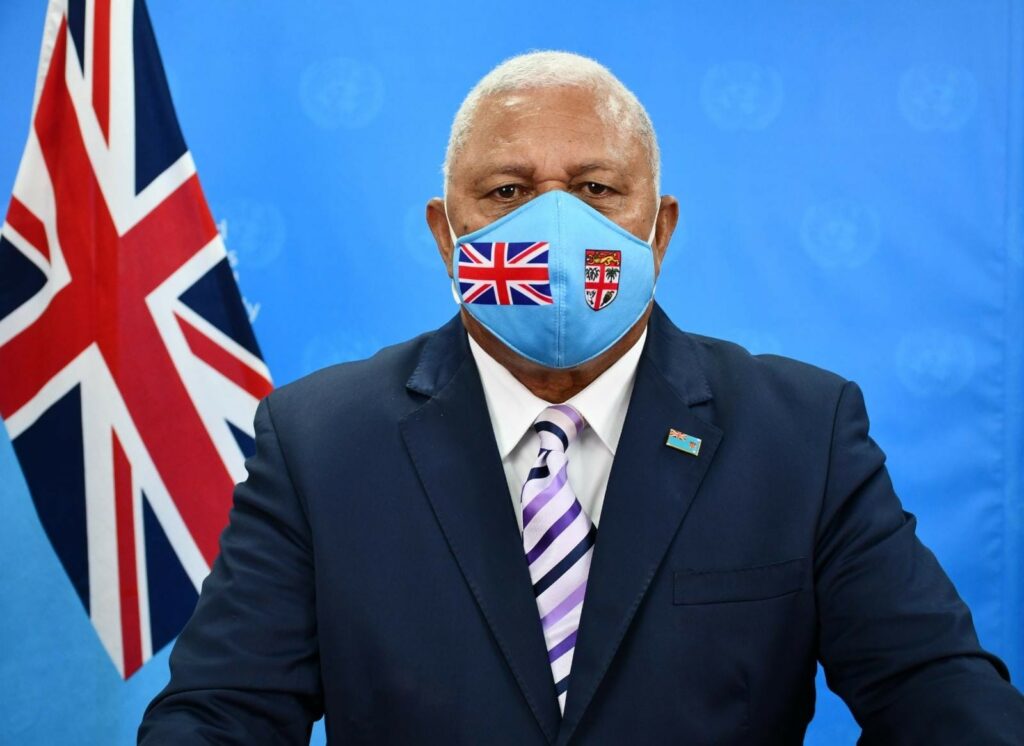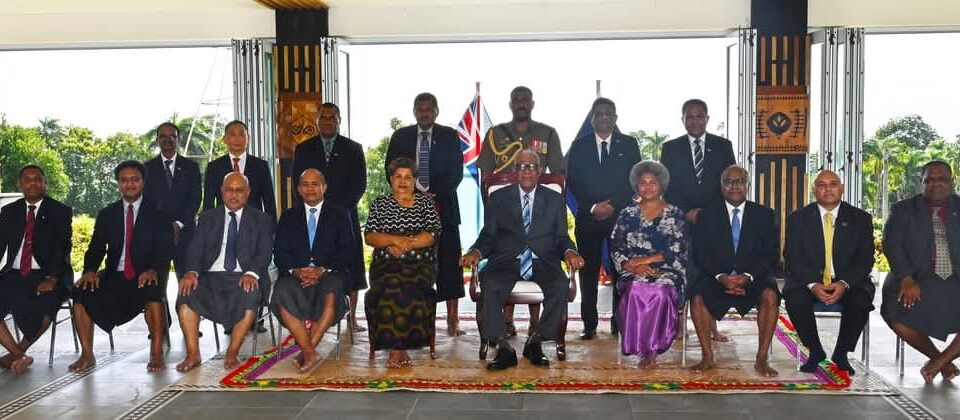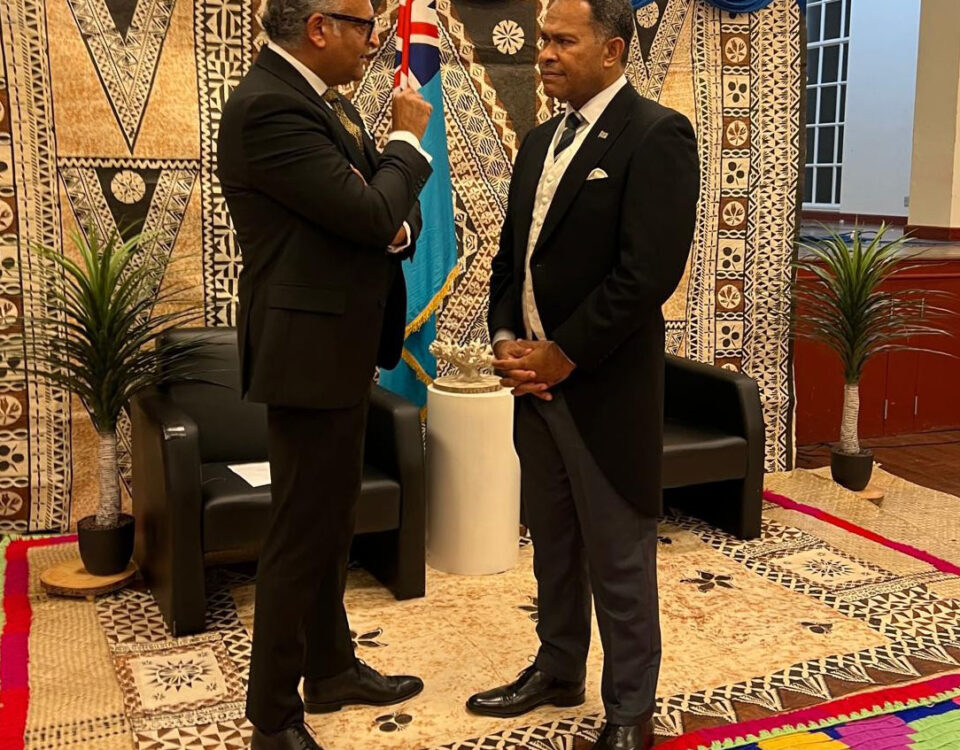
Fiji Joins United Nation’s Efforts for Prompt and Effective Measures Against Racism
23/09/2021
Fijian PM Calls for Solidarity Amongst Small Island States to Respond to Climate Crisis
24/09/2021Published On: 24/09/2021
In a historic event convened by the United Nations today, Prime Minister, Josaia Voreqe Bainimarama and Chair of the Pacific Islands Forum (PIF) delivered a bold statement on the region’s unwavering commitment for global food systems transformation to advance the United Nations’ Sustainable Development Goals and recover better from COVID-19.
At the UN Food Summit 2021, UN Secretary-General António Guterres collaborated with Heads of State and Government from more than 90 countries in launching the new actions to deliver progress on all 17 SDGs, each of which relies to some degree, a healthier, more sustainable and equitable food system.
Representing the 18 Members of Pacific Islands Forum (PIF) at this Summit, Prime Minister Bainimarama delivered a comprehensive statement outlining the challenges, collective actions and plans pursued by the region to build resilient and sustainable food systems.
Prime Minister Bainimarama said that food security must be recognized as a crosscutting aspect of human development and a fundamental building block for sustainable development.
“In 2018, the Pacific Sustainable Development Report had already highlighted food security as one of our region’s key development challenges. We must act on the promises we make at this Summit.
For the Pacific, climate change represents a major threat to the maintenance and development of Food Systems which are vital to food security. Our greatest challenges include sea-level rise, saltwater intrusion, and ocean acidification. All of these combined will impact our culture, water and food security; livelihoods; biodiversity; health and wellbeing.
He stated that Pacific Island biodiversity is under intense pressure from climate change and human induced disturbances.
“Agriculture, fisheries and forestry sectors are vital to national and regional recovery efforts, therefore, coordinated, integrated and ecosystem based sustainable development approaches with all our partners are required to improve resource management practices and to rebuild food security and livelihoods.
“The Pacific region is also grappling with Non-Communicable Diseases (NCD), a crisis that is closely linked to our food systems, health and nutrition. Intensifying multi-sector efforts and financing to address NCD crisis is necessary through: i) increasing resourcing for enforcement of policies and legislation; ii) strengthening preventative interventions across people’s life cycles; iii) promoting nutrition and food security and limiting industries interference; and iv) enhancing investment, resource allocations and accountability.”
The other threats to food security in the Pacific region as highlighted includes rapid urban population growth, land degradation and declining land productivity, erosion of crop genetic diversity, coastal and coral degradation, declining productivity of fisheries, illegal fishing, food storage and transportation limitations.
The Chair of PIF said that within framing of the 2050 Strategy for the Blue Pacific Continent, food security has been identified as a key driver of change for improving the socio-economic well-being of all Pacific people.
He said the region has stepped up its efforts to guide investments and reforms necessary to ensure resilient sectors so that the Pacific region can achieve food sovereignty, enabling the region to receive a fair and equitable share from the contribution of Pacific resources and Blue Foods to global Food Systems.
“The Pacific region also intends to strengthen e-commerce and expand digitalization to accelerate progress on resilient Food Systems, improve nutrition and health and to build climate resilient adaptation capacity.
“COVID-19 has had devastating impacts on food security with exponential increases arising from trade disruptions, and loss of jobs in the service sectors.
“This has reinforced the need for regional and global trade co-operation which are essential for sustainable Food Systems.
“We are encouraged to see a growing recognition that Blue Food Systems serve as an anchoring pillar in the development and maintenance of sustainable food and we recognize that a successful management of Blue Foods requires co-operation among governments and between governments together with relevant stakeholders.
“We are supportive of efforts to create a network to ensure that Blue Foods are brought into the heart of discussions and decisions about Food Systems, and to mobilize support for countries and communities that are taking action to build the vibrant, sustainable Blue Food Systems of the future. We are in firm agreement with the Secretary-General that transforming our food systems is central in our effort to achieve the SDGs.”
In conclusion, Prime Minister Bainimarama supported the call for all stakeholders to work together to adopt a sustainable food systems approach which incorporates science, policy and action into diverse and complex food systems effectively.
“It is critical that we redouble our multilateral efforts to address these vital issues, drawing on the shared capacity within this august body and the common ideals that bring us here. Just as our environment, peoples and food systems are profoundly interwoven and mutually sustaining, so must our response be, for the sake of our and future generations.”






